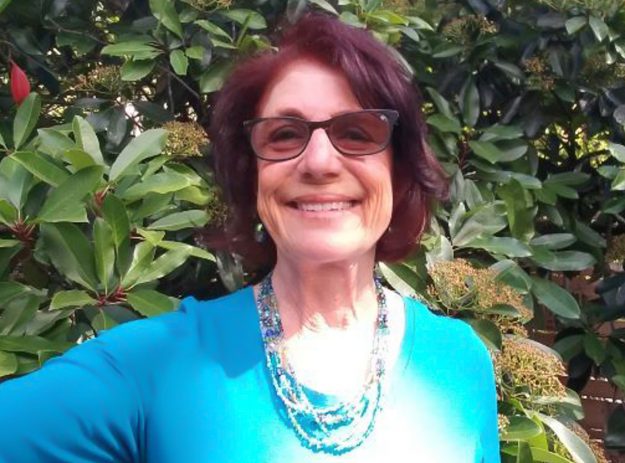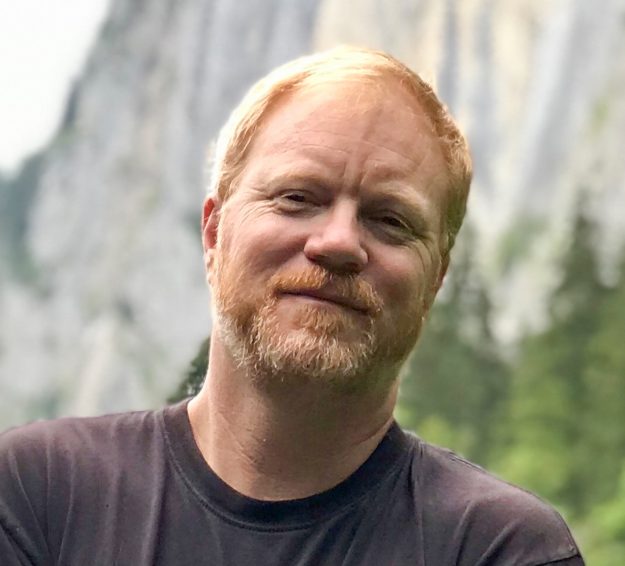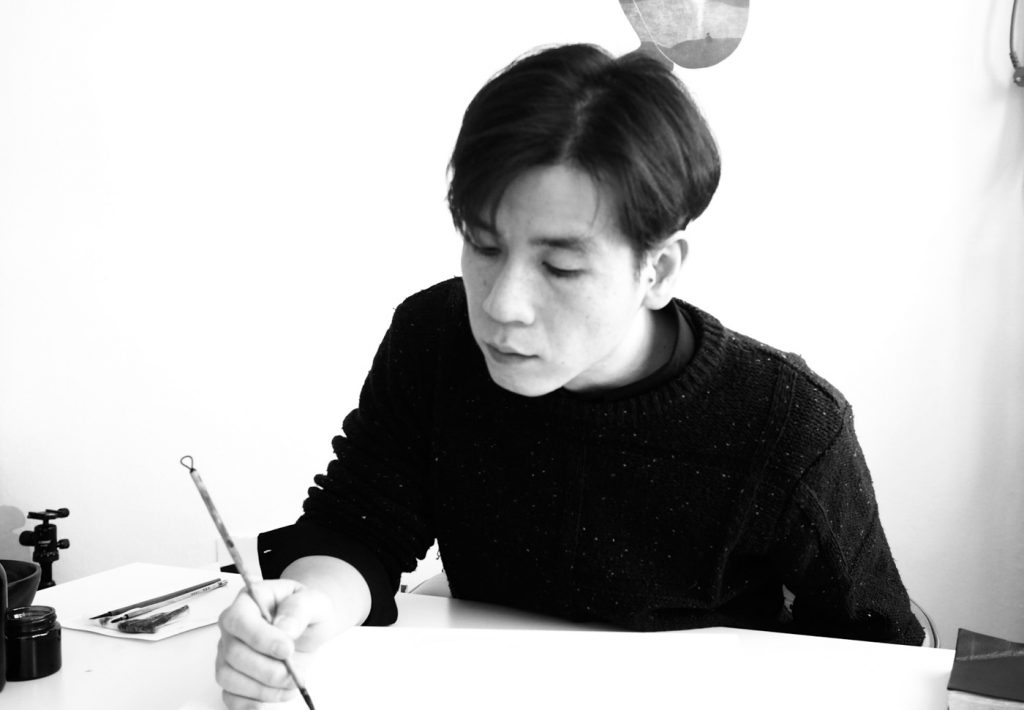Moonassi
The award-winning Korean artist Day-Hyun Kim’s spare black-and-white drawings with their anonymous, mask-like faces are a fitting complement to Noelle Oxenhandler’s Zen-inflected essay on appearances (“Show Me Your Face”). The artist, who uses the pseudonym Moonassi (moona essentially means “emptiness” in Korean; –ssi is an honorific), calls himself “a man of no identity”—not unlike Zen figures of old. Emptiness is at the core of Moonassi’s work, he emphasizes. And his enigmatic, expressionless figures—influenced by his study of ancient Eastern painting—have been said to suggest a buddha in deep meditation.

Noelle Oxenhandler
Though retired from teaching writing, Tricycle contributing editor Noelle Oxenhandler continues to enlighten us about life. In this issue the longtime Buddhist practitioner takes the classic Zen koan “Show me your face before you were born” as inspiration for a forthright look at aging, identity, and appearances. Oxenhandler’s poetry and insightful essays on topics like parenting, womanhood, and self-image have appeared in the New Yorker, Vogue, O: The Oprah Magazine, and the New York Times, and she’s the author of three nonfiction books, including The Wishing Year: A House, a Man, My Soul, a memoir about desire.

Megan Sweas
How does a spiritual community deal with the death of its founder, especially one as universally loved as Thich Nhat Hanh? Journalist Megan Sweas has reported from India, Italy, Cuba, Kenya, and the United States on the intersection of religion and immigration crises, social justice, and the economy. But the crisis she focuses on in “After Thay” is more nuanced—and personal: how the residents of Plum Village, the community Thay (“teacher”) established in France, are modeling ways to carry on a great master’s essential teachings and at the same time evolve.

Benjamin Brose
Benjamin Brose’s academic focus at the University of Michigan is the impact of social, cultural, and political change on the development of religion in China in the late 9th century through the early 11th century, and the 20th century. While Brose has written about Chan monks, for Tricycle he explores the life of a very different sort of practitioner: Ananda Jennings, the first Western woman to do an intensive Chan retreat (“A New Kind of Missionary”). Jennings died in obscurity in 1971 and remains largely unknown in the West. But that may change with Brose’s tale, which includes her remarkable exchanges with a monk named Quishi.
Thank you for subscribing to Tricycle! As a nonprofit, we depend on readers like you to keep Buddhist teachings and practices widely available.
